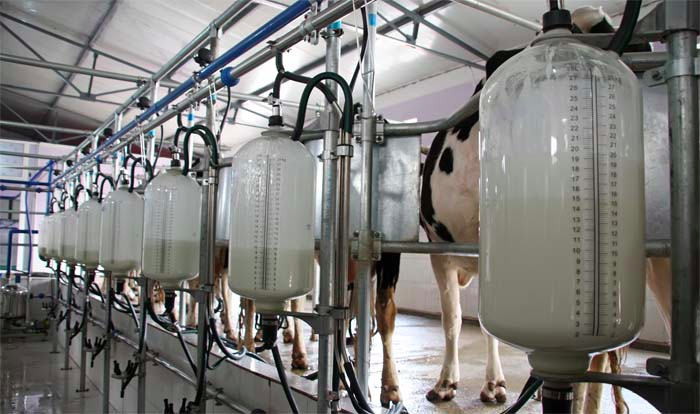
AHDB Dairy has analysed what a no-deal Brexit would mean for the British dairy industry as the UK draws closer to the October deadline.
The UK is a net importer or dairy products, including being a net importer of both dairy fat and protein.
However, considerable volumes of dairy products are both imported and exported to the EU.
Under a no-deal situation, proposed UK tariffs mean there will be significant differences in the tariffs for imports to the UK, and for exports into the EU.
These differences will bring a number of challenges for the industry, according to AHDB Dairy.
Tariffs have been proposed for imports of butter and some cheeses (including Cheddar), albeit at significantly lower levels than those that will be imposed by the EU.
There are no proposed import tariffs on milk, cream, yogurt, whey products or fresh mozzarella.
UK dairy exporters will face tariffs on the majority of dairy products exported to the EU.
This will make UK products more expensive, and in most cases, uncompetitive on EU markets, the levy board says.
It is likely that mozzarella, cream and yogurt will continue to come into the UK, given the lack of tariff.
However, exports of these products will become disrupted, putting strain on UK exporters.
Cheddar imports may be reduced due to the low tariff rate, while exports are likely to be severely disrupted.
This could lead to a build-up of Cheddar stocks in the UK, and cash flow implications for Cheddar manufacturers, AHDB Dairy says.
There is a tariff on raw milk imports into the EU, making the movement of milk from Northern Ireland to the Republic of Ireland uneconomical, it adds.
This milk will either need to be processed in Northern Ireland, most likely into lower-value products such as butter and milk powder, or shipped across to mainland Britain for processing.
The latter would put pressure on logistics and already strained processing capacity in Britain.
The current end of October Brexit deadline coincides with lower milk production months in the UK.
AHDB Dairy says that this offers some breathing space for processing capacity, that respite will only be temporary and would not be enough to enable all Northern Irish milk to be processed in mainland Britain.
